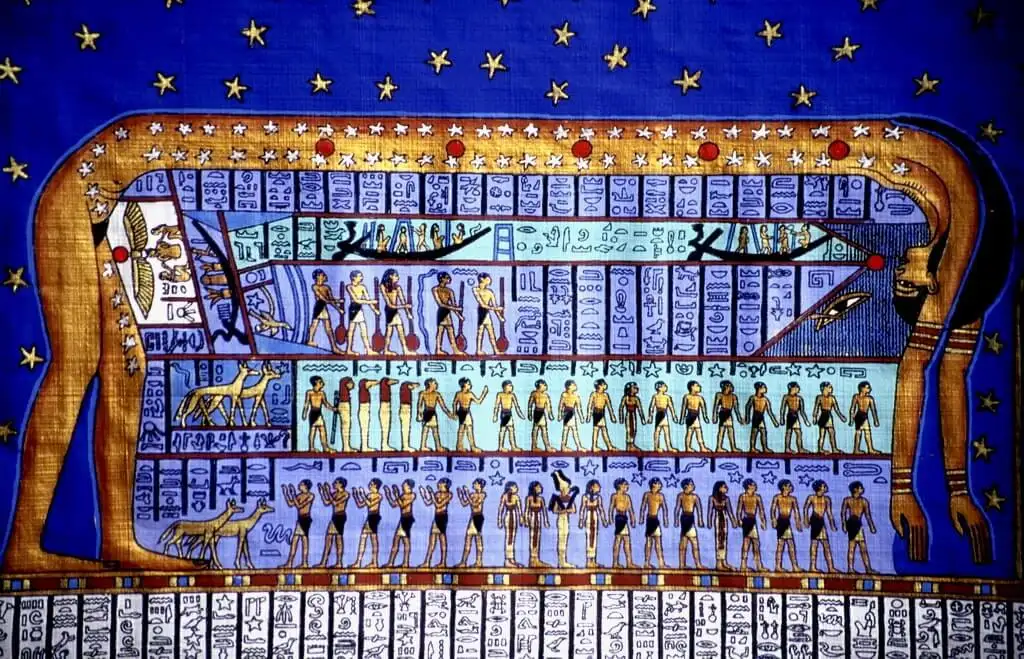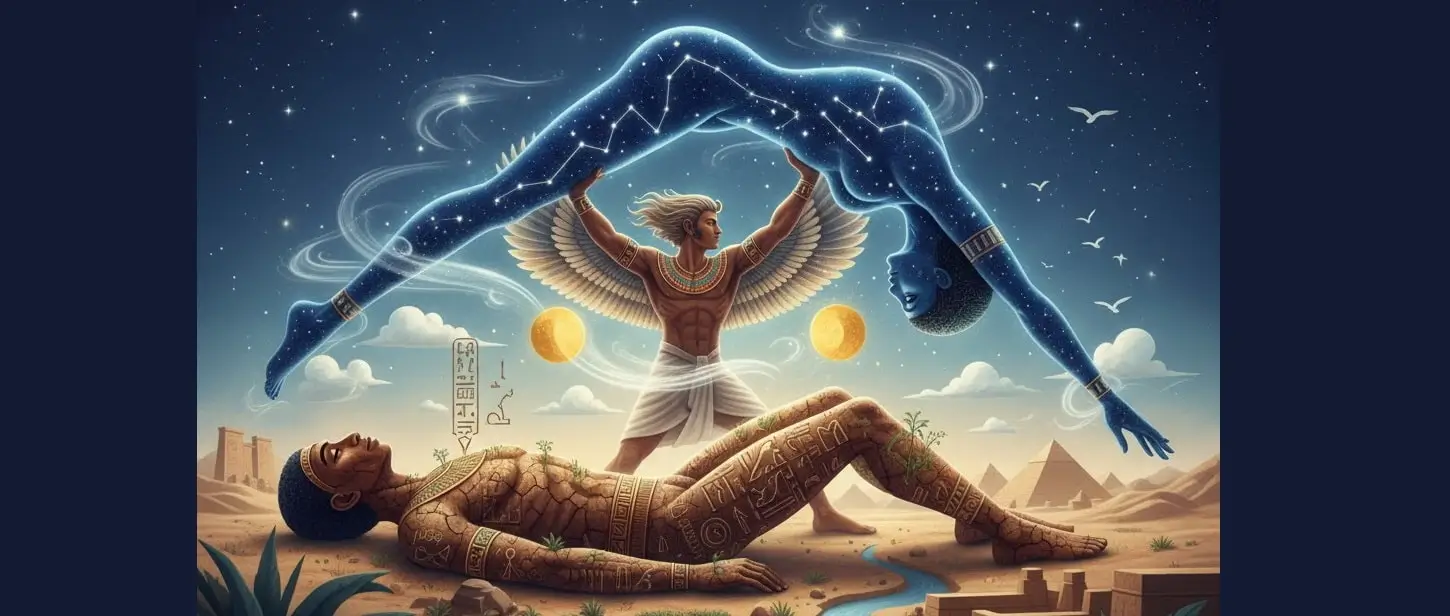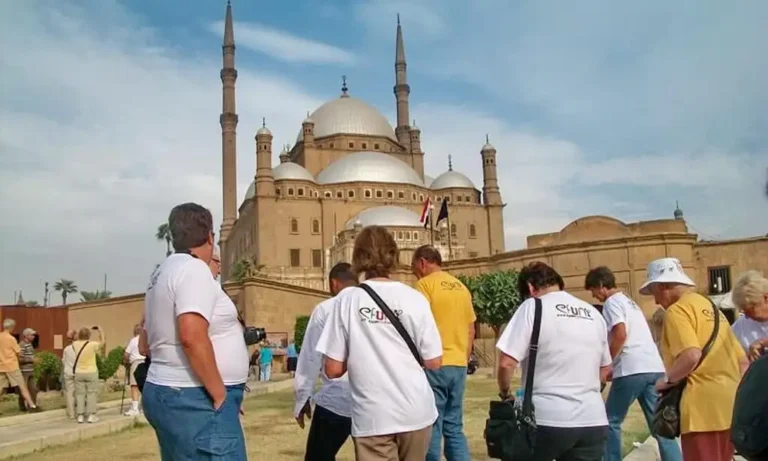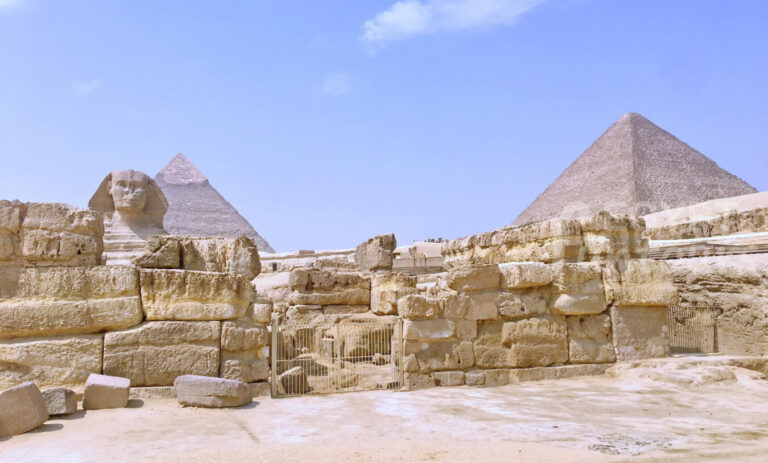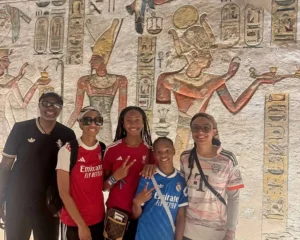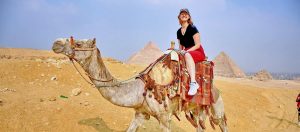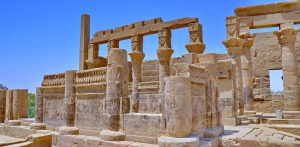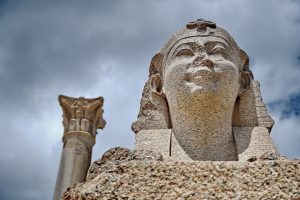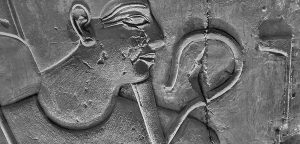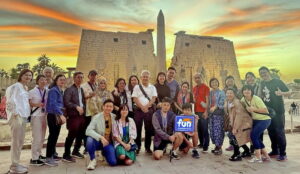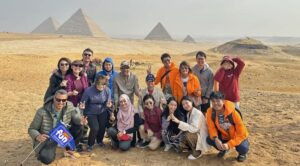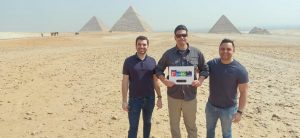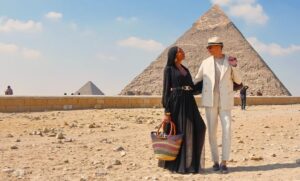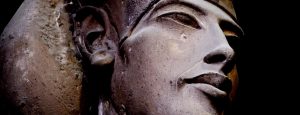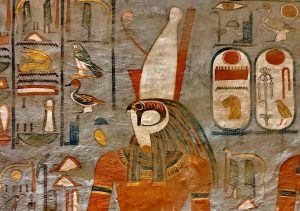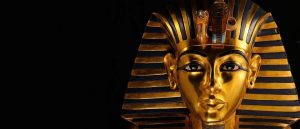The Body of the Earth
God Geb holds the essential, yet often overlooked, position of the Earth deity within the Egyptian pantheon. While the sky goddess Nut arches above and the sun god Ra commands the heavens, Geb is the solid, fertile ground beneath our feet. As the father of the four most famous deities—Osiris, Isis, Seth, and Nephthys—Geb is the direct source of the cosmic drama that defined Egyptian religion.
This guide explores Geb’s vital functions and dual nature. We detail his primal mythic separation from his sister-wife Nut (Sky), an act that created the physical space for all life to thrive. We examine his deep connection to fertility and the crops that fed the civilization. Finally, we uncover the link between the pharaoh’s political power and “The Throne of Geb,” showing that the stability of the Earth god meant the stability of the Egyptian state.

